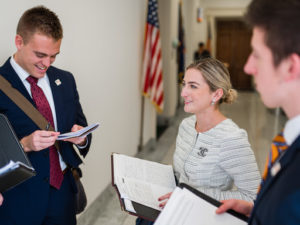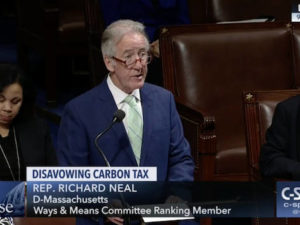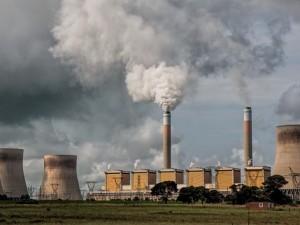Racism, climate & working together
By Flannery Winchester
Our country is going through an important time right now. Spurred by weeks of protest, millions of people and many organizations are reckoning with their role in America’s ongoing racial injustice, listening to and learning from people that have too often been ignored, and identifying ways to do better.
Citizens’ Climate Lobby is, too. Last year, our staffers Karina Ramirez, Princella Talley, Clara Fang and Jim Tolbert crafted and began implementing a Diversity, Equity and Inclusion plan, supported by staffers Tony Sirna and Madeleine Para. We have articulated some of that work on a new page on CCL’s website.
As we continue that work, we’ve been reading some meaningful statements and reflections on racism, climate change, and working together. We’d like to share some of those with you, too.
Dr. Ayana Elizabeth Johnson – “Stopping climate change is hard enough, but racism only makes it harder.”
Dr. Johnson is a marine biologist, policy advisor, and founder of Ocean Collectiv and the Urban Ocean Lab. When protests erupted against systemic racism, she wrote in the Washington Post, “As a marine biologist and policy nerd, building community around climate solutions is my life’s work. But I’m also a black person in the United States of America. I work on one existential crisis, but these days I can’t concentrate because of another.”
She points out that “black Americans are disproportionately more likely than whites to be concerned about — and affected by — the climate crisis.” But, she asks, “How can we expect black Americans to focus on climate when we are so at risk on our streets, in our communities, and even within our own homes?”
She challenges: “White people who care about maintaining a habitable planet, I need you to become actively anti-racist. I need you to understand that our racial inequality crisis is intertwined with our climate crisis. If we don’t work on both, we will succeed at neither.” You can read her full piece here.
John Wood, Jr. – Our culture “requires black and white, left and right, and everyone in between.”
“Many of us are looking at the reality of race relations in America today with new eyes. We are listening to those giving voice to the pain of the black experience with new ears,” writes John Wood, Jr. John is the Director of Public Outreach for Braver Angels, an organization working to depolarize American politics. (If you’d like to experience their work firsthand, CCL’s new Braver Angels Action Team can arrange a depolarizing workshop for you and your CCL chapter.)
In a heartfelt post, he shares a bit about his childhood, his wife’s childhood, and the complexity and variety of being black in America. As he grew up, John says, “I trusted the institutions that surrounded me. Why? Because, white or otherwise, they seemed to be made up of people who cared,” including politicians, teachers, and law enforcement. But just 15 miles away, John’s wife grew up in “a war zone,” with a very different experience.
John explains, “We need a political culture in America with the thoughtfulness to engage the true complexity of black life, police relationships, race and racism in our society. It is a culture that requires black and white, left and right – and everyone in between.” Read John’s full piece here.
Bob Inglis – “I need to humbly acknowledge [my] unearned privilege.”
Bob Inglis is one of CCE’s board members and the CEO of RepublicEn. In a message on RepublicEn’s website, He reflects on exchanges during his political career that illuminated issues of fairness in our country. From one of his Black constituents, a man named Don Martin, Bob learned, “When you’re white, you can assume fairness. Your children apply for jobs, they have a name like Robert or Sally, they get interviews, maybe they get hired.” But for Black Americans, he learned, “You can’t assume fairness. You have to establish it. You have to establish that your child will be treated fairly.”
He writes, “As we work to solve climate change at republicEn.org, we’re aware of the environmental injustices that will subject low-income people to the worst effects of climate change. Disproportionately, those will be people of color. As a white guy, I need to humbly acknowledge the unearned privilege that will exempt me from much of that suffering.”
Bob ends by reminding readers, “We owe to those coming after us a duty to learn from our mistakes and to prepare for them a more perfect union.” Read Bob’s full piece here.
We hope you find these statements and reflections helpful as the work of dismantling racism continues in our country, in our climate movement, in our circles of family and friends, and within ourselves.





